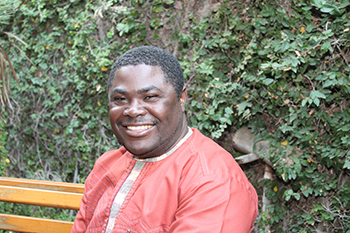Latest News Archive
Please select Category, Year, and then Month to display items
09 December 2020
|
Story UFS entral academic advising team
|
Photo Pixabay

It wasn’t easy, but we all got to this point because we stayed calm and made the effort to learn on even when it was difficult.
The University of the Free State (UFS) has remained committed to supporting you in every way possible, and as you prepare for the final assessments, remember to access the support tools you will need in order to successfully complete the 2020 academic year: https://www.ufs.ac.za/toolsforsuccess
Main exams are running from 30 November to 19 December 2020
All of the best, and break a pen in your upcoming final assessments. For those of you who will be graduating, we cannot wait to see you in that graduation attire; and those who still have some way to go, we cannot wait to serve you again in 2021 as we continue the pursuit of academic success!
Below are five main study tips that you can use for final assessment success:
1. Set a realistic study schedule
You might think that studying for eight hours straight for four days before the exam, will help you get through the work in time. See final edition of the #UFSLearnOn for more information.
2. Structure and organise your work
If your notes are organised, it is also easier for your brain to recall information, even when you become nervous during exams.
3. Practise with an old exam/semester test paper
Practice makes perfect, and although the final assessments might look different in how they are administered, it will still help to practise using old tests and exams.
4. Adapt your strategies to the content
What works for one module or even one learning outcome, might not be effective for another. You need to continually adapt your note-taking and study approaches. See #UFSLearnOn final edition for different study methods.
5. Healthy body, healthy mind
Your brain needs optimal care to perform at its best, and getting physically active (even if it is by jumping in one spot if space is limited) forces your body to release neurotransmitters responsible for positive emotions, which assist in retaining information in your memory …
Download the final edition of #UFSLearnOn that points you towards the resources you’ll need to ace your final assessments and end 2020 off on a high note!
UFS mathematician rates as top reviewer
2017-09-27

Prof Abdon Atangana is a professor at the
Institute for Groundwater Studies at the University
of the Free State.
Photo: Rulanzen Martin
South Africa was included in the top 30 countries in terms of researchers who added the most pre-publication peer reviews.
Prof Abdon Atangana, a professor of Applied Mathematics at the Institute for Groundwater Studies at the University of the Free State (UFS), is included in the list of top reviewers from top countries, as determined by the number of verified pre-publication peer reviews added to Publons for Publons Peer Review Awards 2017.
Producing the most verified peer reviews
He rated in the top 1% of reviewers (9th), in all fields, who performed the most verified pre-publication peer reviews at Publons for Publons Peer Review Awards 2017. In 2017 he also received the following awards:
- Top reviewers for UFS in the category Mathematics, rating in eighth place. In this category Stanford University rated second. Rating in ninth place is the University of Luxembourg.
- Top reviewers for Mathematics (rating 1st). In this category the Southern Illinois University and the Johns Hopkins University in the US rated in 27th and 25th place respectively.
- Top reviewers for Engineering (rating 47th)
Prof Atangana’s research interests are methods and applications of partial and ordinary differential equations, fractional differential equations, perturbation methods, asymptotic methods, iterative methods, and groundwater modelling.
Passion for the development of science
Key to his success as peer reviewer is his passion for the development of science, his ability to write fair reports about a given manuscript, as well as his knowledge of what has been done and what the challenges are in a given field to be able to give a report that will help the advancement of science.
“Due to the impact of my research papers in the field of mathematics and applied mathematics and also my international recognition in the field of applied mathematics, many editors in more than 100 journals of applied mathematics trust my opinion to assess whether a submitted paper in a given journal of mathematics and applied mathematics can be published or not,” said Prof Atangana.